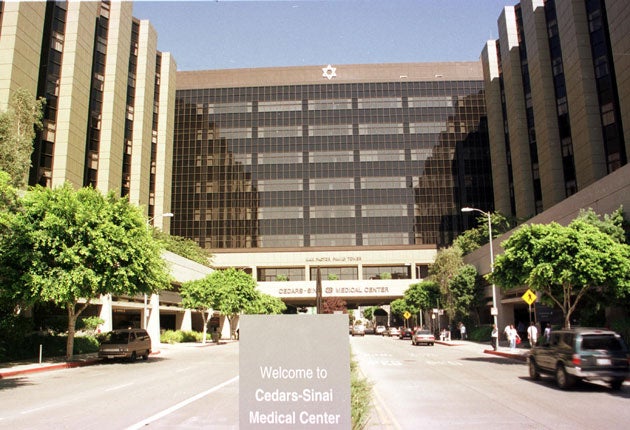Brain scans disaster at celebrity hospital
Patients given eight times the normal radiation dose

Your support helps us to tell the story
From reproductive rights to climate change to Big Tech, The Independent is on the ground when the story is developing. Whether it's investigating the financials of Elon Musk's pro-Trump PAC or producing our latest documentary, 'The A Word', which shines a light on the American women fighting for reproductive rights, we know how important it is to parse out the facts from the messaging.
At such a critical moment in US history, we need reporters on the ground. Your donation allows us to keep sending journalists to speak to both sides of the story.
The Independent is trusted by Americans across the entire political spectrum. And unlike many other quality news outlets, we choose not to lock Americans out of our reporting and analysis with paywalls. We believe quality journalism should be available to everyone, paid for by those who can afford it.
Your support makes all the difference.With a patients' roll call that reads like an Oscars' party guest list, Los Angeles' Cedars-Sinai Medical Centre is used to making the headlines. But the hospital has found itself making them for the wrong reasons this weekend after it admitted exposing more than 200 of its patients to excessively high doses of radiation from CT brain scans.
The hospital to the stars is under federal investigation following the debacle, which went undetected for 18 months. Patients receiving CT brain scans, used to diagnose strokes, were given eight times the normal dose of radiation in incidents dating back to February 2008, the hospital admitted yesterday.
All 206 patients affected have been alerted – although around 80 already suspected something was wrong after their hair started falling out. Officials at Cedars-Sinai said they became aware of the problem in August after a patient who had received a scan noticed an unexpected loss of hair, which should not have happened. All hospitals in the US have now been urged to review their safety protocols for CT scans, and California's Department of Health is investigating the overdoses.
Past patients at Cedars-Sinai include the great and good of Hollywood, from Frank Sinatra to River Phoenix. Numerous stars have given birth there, including Judy Garland, Madonna and Christina Aguilera, while Heidi Klum had her fourth child there last week.
It is not the first time that Cedars-Sinai has found itself at the centre of a scandal. Two years ago, the lives of twins newly born to the actor Dennis Quaid and his wife, Kimberly, were endangered after they were given 1,000 times the intended dose of a blood thinner. State regulators later fined the hospital $25,000 (£15,600) for safety lapses involving the twins and another child. The Quaids sued the hospital, settling the case for $750,000.
It is not clear what caused the radiation overdoses. A spokesman for the US Food and Drug Administration said it was looking into whether the fault lay with the scan machine itself or the hospital's procedures.
CT scans are common in the US. Doctors order the scans as standard procedure to reveal whether a patient has suffered a stroke, which blocks the flow of blood to brain tissue. The amount of information that doctors get from a scan depends on the quantity of radiation that is used. Very high doses of radiation can cause poisoning and lead to cancer years or even decades later.
Although the hospital briefly stopped administering the CT brain perfusion scans, it is now offering them again. Depending on the outcome of the investigation, the hospital could face restrictions on doing CT scans under its state licence.
Join our commenting forum
Join thought-provoking conversations, follow other Independent readers and see their replies
Comments